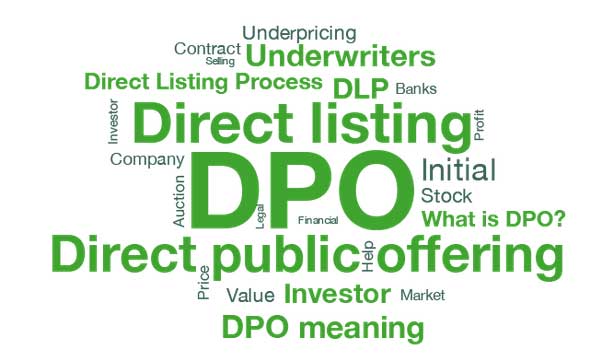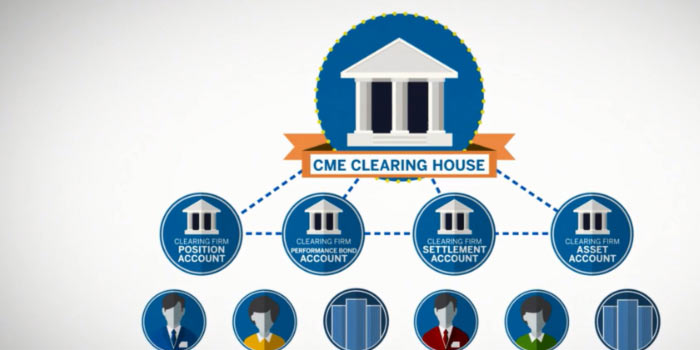
Are you interested in learning more about direct public offerings (DPOs) but need help knowing where to start? This blog post answers all your questions and provides a comprehensive overview of the topic. 
A DPO is a type of investment offering in which shares of stock are offered directly from the company issuing them, allowing companies that have yet to go through an initial public offering (IPO) process, or haven’t done so for many years, access to much-needed capital.
By engaging directly with potential investors during a DPO through roadshows and other methods, companies can bypass underwriters—a costly proposition when we factor in fees charged by those listed entities—and generate an impressive amount of buzz around their brand.
In this blog post, we'll discuss what a DPO is, who should consider it an option for raising capital, and how they compare with traditional IPOs. So let’s get started!
What is a Direct Public Offering (DPO)?
A Direct Public Offering (DPO) is an investment offering in which shares of stock are offered directly from the company issuing them without going through an Initial Public Offering (IPO). This allows companies that have yet to go through the IPO process or haven’t done so for many years access much-needed capital.
How does a DPO Work?
When a company decides to launch a DPO, it typically begins by hiring an underwriter or broker-dealer to handle the offering. The broker-dealer will then work with the company to create a “registration statement,” which outlines the terms of the offering, such as how many shares will be issued and at what price.
Once the registration statement is filed with the SEC and approved, it goes into effect, and the company can begin marketing its DPO to potential investors. This process usually involves roadshows and other methods of direct outreach to get investors interested in participating in the offering.
Once investors have committed to buying shares, the broker-dealer will accept their funds and distribute the stock to them. The company will then receive the money from selling its shares, which it can use for various purposes, such as expanding or further developing its products or services.
Benefits of Investing in a DPO:
1. Ability to Invest Early: By investing in a DPO, you can be among the first investors in a company and gain access to early-stage companies. This presents the potential for greater returns than investing in an IPO or other publicly traded security.
2. Greater Opportunity for Engagement: With a DPO, investors can engage directly with the company’s management, ask questions, and get answers about the business, providing a chance to gain insight into the company’s direction and future.
3. Lower Investment Threshold: Since a DPO is not an IPO, the money required to invest in the offering is typically much lower than with an IPO. This gives investors a greater opportunity to invest without committing large amounts of capital.
4. Potential for Long-Term Returns: By investing in a DPO, investors can benefit from long-term returns due to the company’s growth. This gives investors a chance to benefit in the near term and over many years as the company continues to expand and grow.
How Can Investors Buy and Sell in a DPO?
Once shares are issued, investors can buy and sell them in various ways, including through brokers or online platforms. Investors can also participate in secondary market transactions if the company has appointed one to facilitate those purchases.
Additionally, DPOs often restrict how quickly and easily an investor can resell their shares—known as "lock-up periods" or "lock-ups"—which allow companies to ensure that their shares are not oversold.
Factors that Influence the Price of a DPO:
The company determines the pricing of a DPO, but several factors could influence the price of an offering. These include:
1. The size and scope of the offering: Companies typically set the price per share based on how many shares are being offered and the amount of capital needed.
2. The current market conditions: Companies must consider the stock market's overall performance and whether it is a favorable climate for investing.
3. The company's financial health: A company’s past performance, current financial situation, and potential prospects all affect the price of a DPO.
4. The number of interested investors: If there is significant demand for an offering, the company may command a higher price per share due to the increased demand.
The Risks of Investing in a DPO:
1. There needs to be more transparency as the company has yet to undergo independent third-party due diligence.
2. There is no guarantee that the offering will be successful, and there are no guarantees that the stock price will rise after the offering closes.
3. Many investors may need access to all the information necessary to make an informed decision about the offering.
4. The company may have a short track record of success and could be a risky investment.
5. Many state and federal laws restrict who can invest in DPOs, so it is important to research these rules before investing.
How to Research and Analyze a DPO Before Investing?
1. Review the company’s financials and history of operations.
2. Research the company’s industry and competitive environment.
3. Evaluate the management team and their experience in managing public companies.
4. Analyze the proposed terms of the offering, including how much capital is being raised, what percentage of the company is being offered, and how long the offering will last.
5. Review the underwriting arrangements and other offering details that could affect your investment decision.
6. Talk to independent financial advisors or accountants who know DPOs to gain additional insight into the offering.
7. Consider whether a DPO is the right type of investment for you based on your financial objectives and risk tolerance.
8. Make sure to ask questions and get clarification from the company on any uncertain or unclear details about the offering.
9. Understand all risks associated with investing in a DPO before deciding.
FAQs
What is direct vs. public offering?
A direct public offering (DPO) is a form of public offering in which companies issue shares directly to the public instead of utilizing an intermediary like an investment bank. This allows companies that have yet to go through an initial public offering (IPO) process, or haven’t done so for many years, access much-needed capital.
What is an example of a direct offering?
A great example of a direct offering is when Snapchat sold 200 million shares directly to investors in March 2017. The deal was structured as a DPO, and the company raised over $3 billion from the offering.
Do private companies need a DPO?
It depends on the situation. Companies that want to raise capital without going through an initial public offering may decide that a DPO is their best option. However, if a company has access to private funding or other sources of capital, it may decide against doing a DPO.
Conclusion
Direct public offerings are becoming increasingly popular as companies seek different capital access methods. With the ability to issue stock directly from the company and engage with investors in a more personalized manner, DPOs provide an interesting alternative to IPOs.
Companies should carefully consider all of the benefits a direct public offering could offer them before deciding whether or not to pursue this type of investment offer. Ultimately, with the right strategy in place, a DPO could be a great way for companies to raise capital and engage with potential investors.





